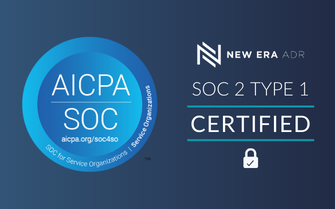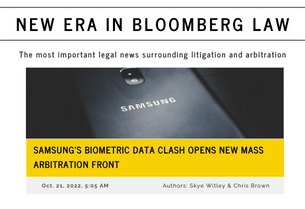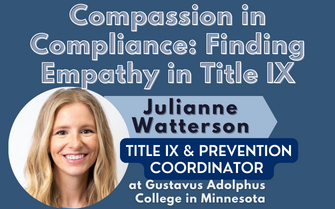
Sexual Violence is Increasing on US Campuses
Higher education has unfortunately been plagued by Title IX scandals in the past. With reputation, funding, enrollment, recruitment, and retention at risk, colleges and universities are inherently conflicted. In 2015, U.S. News and World Report corespondent Allie Bidwell revealed two shocking statistics:
(a) between 2009 and 2014, the number of sexual violence complaints at colleges and universities increased more than 1,000 percent; and
(b) during that same period, the amount of time it took for cases to result in “substantive closures” went from 379 days to 1,469 days.
To put this into context, this means that if a student reported a sexual assault incident on the first day of their freshman year, the case would not be resolved until more than four years later; likely after their graduation. Such a lengthy timeline disincentivizes victims from reporting crimes, especially when the school they attend is the same organization handling the investigation.
To look more closely at how colleges and universities can address the increasing need for Title IX resolutions, let’s look at the resources available, the competing interests at play, and how Title IX proceedings can better support victims and encourage timely resolutions.
Resources Available for Title IX Claims
In Title IX proceedings, colleges and universities often find themselves tasked with investigating the incident, pursuing leads and facts and also serving as the judge and jury. Given the volume of cases and significant role schools play, The White House Task Force to Protect Students from Sexual Assault noted the following in 2014:
All educational institutions receiving Federal financial assistance must designate at least one employee to coordinate their efforts to comply with and carry out their responsibilities under Title IX of the Education Amendments of 1972, which prohibits sex discrimination in education programs and activities.
What is the Role of the Title IX Coordinator?
These designated employees are generally referred to as Title IX coordinators. A school’s Title IX coordinator or coordinators are expected to play a critical role in helping a school ensure that every person affected by its operations—including faculty, staff, and students—are aware of their legal rights under Title IX. Title IX coordinators are responsible for ensuring that the school and all of its employees, through its policies, procedures, and practices, comply with its legal obligations under Title IX.
A school should ensure that the Title IX coordinator is given the visibility, training, authority, and support necessary to fulfill these responsibilities. The coordinator should not have other job responsibilities that may create a conflict of interest. Designating a full-time Title IX coordinator will minimize the risk of a conflict of interest. See https://www.justice.gov/archives/ovw/page/file/910301/download.
To break this down, all colleges and universities that receive any federal funding must designate at least one employee to handle Title IX responsibilities. This person should ostensibly be trained in Title IX related issues and the mandates under both state and federal law. The position is known as the “Title IX Coordinator.”
The Title IX Coordinator cannot have any other job responsibilities that would create a conflict of interest which makes having a full-time Title IX Coordinator the best option. This part is key because it dictates that, while having a full-time Title IX Coordinator is desirable, it is not required.
Accordingly, handling Title IX reports may be only one of a myriad of responsibilities the person has at the college and university (as long as those responsibilities are not deemed to be a conflict of interest by the school). Understandably, this workload can lead to competing priorities and, at the most base level, a lack of bandwidth to devote solely to Title IX issues. Although not their fault, being overworked can easily result in missed steps, incomplete reporting, failed investigations and generally poor outcomes.
Interests of Colleges and Universities Generally
Complicating an already sensitive situation is the simple fact that the colleges and universities involved benefit when cases are not reported or publicized. This is not to say colleges and universities do not want to do the right thing.
To the contrary, it’s likely that these institutions care about their students and actively work to create safe environments. That said, colleges and universities are not dissimilar to for-profit businesses in that they are competing for both talent and prestige. The more negative publicity attributable to the school, the more difficult it becomes to recruit talent, attract students, fundraise and maintain prestigious rankings.
There is nothing wrong with having faculty and employees that want to paint their college or university in the most positive light, but when it can impact justice, the consequences must be carefully considered. Bias can result when there are tangible negative impacts from a Title IX report. The bias may very well be implicit, as opposed to explicit.
For instance, while the Dean may very much want to help the complainant and respondent, she may also be implicitly driven to avoid the Title IX reporting process to ensure it does not adversely impact the name and reputation of her school.
Why we believe Title IX Proceedings Should be Outsourced
Given the lack of resources that schools may be able to devote to Title IX reporting, as well as the implicit bias that can result from having faculty members and employees serve as the fact finders and decision-makers in these proceedings, Title IX proceedings should be outsourced to third parties. It Is very difficult to expect that an institution with so many competing interests and responsibilities can always run completely balanced and neutral process.
More concerning, it appears clear that students feel the same way and the formal reporting of Title IX violations is likely far less than the actual incidents. If students don’t feel they can or will receive justice, what is the motivation to file a report? Once again, this is not an attack on colleges and universities that are doing the best they can; it is simply a recommendation that schools remove the onus of investigating and deciding each case.
In traditional litigation, an employee of a company getting sued wouldn’t be the person chosen to investigate the company. It would be done by an independent, neutral third-party to eliminate even the most basic appearance of impropriety. In the Title IX context, the stakes are even higher, and organizations like New Era ADR can provide the resources and impartial neutrals to serve all sides fairly.
Learn more at www.neweraadr.com.




